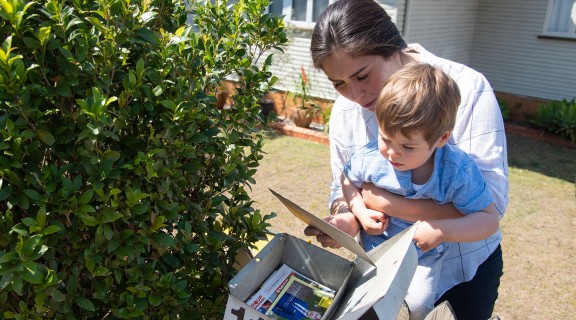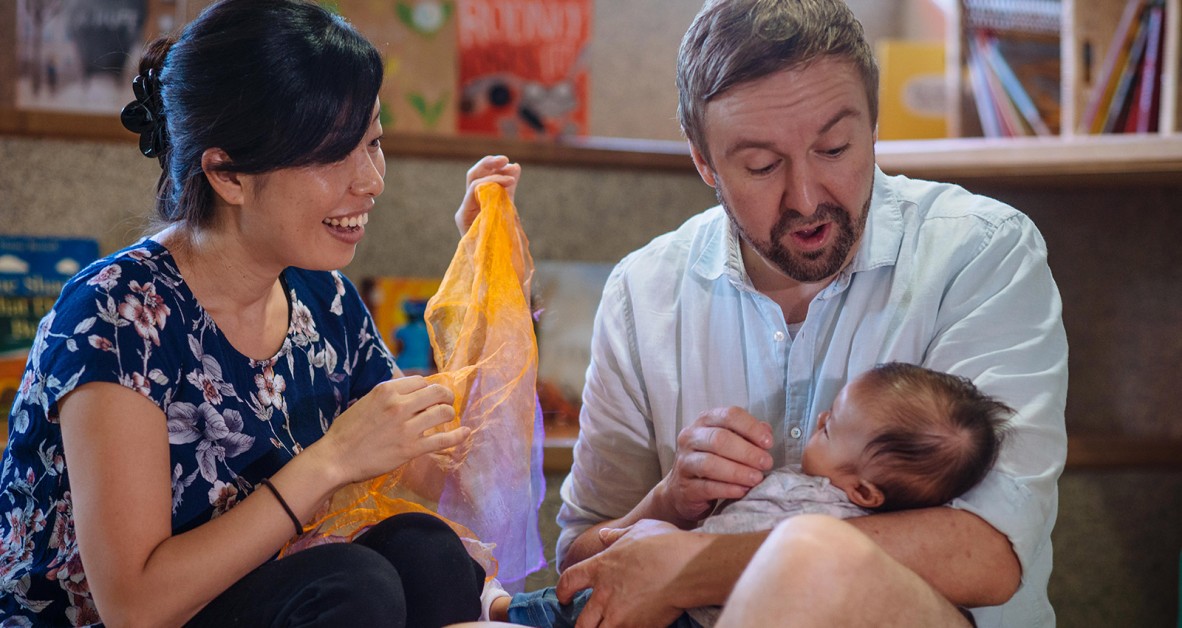
Four ways to help your child’s language development
31 October 2019 | State Library of Queensland
Little steps are all important on the road to learning language. Here are four things you can do, right from the beginning to support early language development.
Narrate your day
It may seem silly at first, but talking about what you’re doing as you go about your day is a great and easy way to give your child regular exposure to language. Every word they hear counts – especially in the critical years from birth to five. Remember to pause and encourage feedback from your child. Even little babies can make gestures and noises to contribute to your ‘conversation’.
Keep books in every room, in the car, the pram and in your bag for outings
Keeping books (picture books, board books, and junior non-fiction) accessible and sharing them regularly not only makes transitions and wait time less stressful, the practice also makes a unique contribution to language development.
Think about all the things you read about that don’t come up in conversation or day-to-day observation. It’s part of the reason why reading helps children expand their vocabulary. How else can we discover the meaning of igloos or polar bears when we live in the Sunshine State? Plus, the pictures in books help young children make sense of new and unusual concepts and words.
Involve your child in household tasks
Writing a shopping list? Checking the mail? Packing away toys? If you engage and involve your child in helping you complete these tasks, they can be rich in opportunities for language and learning.
See if children can identify whether the milk is full, half full or empty before you add it to the list. Can they count how many apples are left in the bowl? Rather than ask your child to clean up, give more specific instructions like, "Can you put all the books back on the shelf?" Sing a song to make it fun. You could make one up, or here’s a simple one sung to the tune of Twinkle Twinkle Little Star.
Clean up, clean up little star
Stop and clean up where you are.
Time to put our toys away,
We’ll get them out another day.
Clean up, clean up little star,
Stop and clean up where you are.

When we sing, we slow our language down which helps babies and young children hear all the smaller sounds that make up words
Sing the classics
When we sing, we slow our language down which helps babies and young children hear all the smaller sounds that make up words – an important early language and literacy skill. Brush up on old favourites and learn new nursery rhymes at a free session at your local library. Here are a few suggested by public library staff.
Spoken Rhymes
- Jelly on a Plate
- I’m a Little Cuckoo Clock
- Here is the Beehive
- Baby’s Nap
- Ten Little Fingers
Singing Rhymes
- 1,2,3,4,5 Once I Caught a Fish Alive
- 5 Little Ducks
- Baa Baa Pink Sheep
- Galumph Went the Little Green Frog
- I Went To Visit a Farm One Day
- You’re My Little Baby
- Miss Polly
- Open/Shut Them
- Wash Your Dirty Hands
- Rain is Falling Down
Comments
Your email address will not be published.
We welcome relevant, respectful comments.